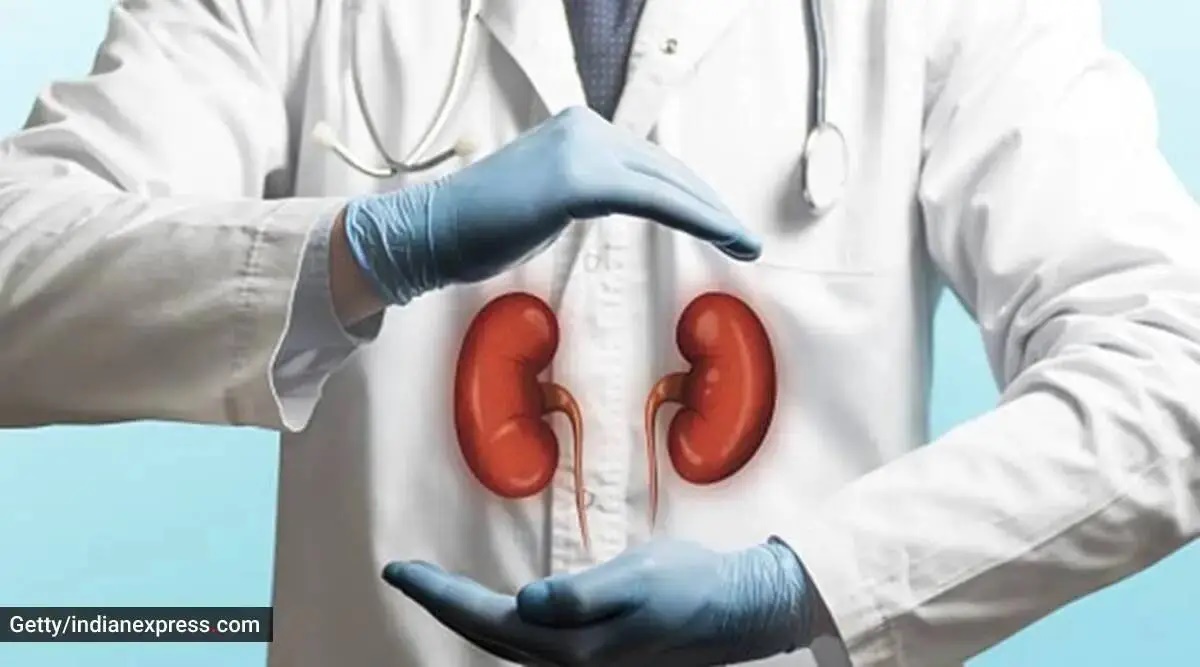World Kidney Day: Why is Chronic Kidney Disease (CKD) rising among Indians? Know about 6 triggers we ignore
3 minute readPublished: Thursday, March 9, 2023 at 10:30 am

Written by Dr Vikram Kalra Kidneys are crucial for the proper functioning of your body and any damage to vital organs can affect the bodys ability to clean your blood, filter extra water out of your body and help control your blood pressure. Kidney disease also has an effect on the production of red blood cells as well as vitamin D metabolism needed for bone health. As a result, it is important to keep your kidneys in good health. Chronic Kidney Disease (CKD) is seeing an alarming rise in our country and doctors attribute it to a poor lifestyle, pollution and a late diagnosis among others. While comorbid conditions such as diabetes and hypertension are the major cause of CKD in the elderly, congenital and genetic reasons also form a major chunk of patients with kidney problems, many of whom may need kidney transplant. In cases where kidney disease may stem from autoimmune or other causes, it may not be possible to control the condition. However, adequate precaution can play a big role to help prevent the disease. Some of the important tests to measure kidney function include serum creatinine, blood urea nitrogen and glomerular filtration rate. Of these, serum creatinine is commonly used to check if the kidneys are in good health. Creatinine is a waste product and its levels in the blood can vary depending on age and body size. A creatinine level of greater than 1.4 for men and greater than 1.2 for women may be an early sign that the kidneys are not functioning properly. With the progression of disease, the level of creatinine in the blood rises. Some of the natural ways to lower creatinine include increasing your fibre intake, reducing protein intake, ensure you stay hydrated, cut down excessive salt consumption, limit smoking and alcohol consumption and lastly, dont take additional creatinine. Here is what most of us do not take seriously: 1) Uncontrolled High Blood Pressure: High blood pressure has a damaging effect on your kidneys and pushes your chances of getting kidney disease. If you are suffering from high blood pressure, your doctor may prescribe medicines to keep it in control. Additionally, you can make simple changes in your lifestyle, such as cutting down your intake of salt and alcohol, maintaining a healthy weight, and doing moderate intensity exercises to keep your blood pressure in check. 2) Using excess pain medicines: Using too many pain medicines called NSAIDs (non-steroidal anti-inflammatory drugs such as ibuprofen), especially in high doses, results in reduced flow to the kidney, causing damage to kidney tissue. 3) Excessive salt consumption: Over time, a diet high in salt can raise your blood pressure, which can damage your kidneys. A better way to spice up your food to make it interesting is to season it with herbs rather than excess salt. This habit practised over a period of time will cut down your excess salt intake and make you healthier from inside. 4) Practising an unhealthy lifestyle: Smoking damages every organ of the body, including the kidneys. If you are having trouble quitting smoking on your own, ask your doctor about treatment options. A healthy lifestyle includes consuming a balanced and nutritious diet coupled with a regular dose of exercise and staying away from vices like smoking. A healthy diet plan is one that is rich in fresh fruits and vegetables, wholegrains, seeds and nuts and is less in sodium, sugar, fat and red meats. This helps lower blood pressure and keeps blood sugar levels in check. Regular exercise not only helps you maintain weight but also aids in controlling blood pressure and cholesterol, builds strength and lowers your chances of getting diseases. 5) High blood sugar levels: A number of factors, including those out of a persons control, such as hormones, illness or stress are known to influence blood sugar levels. Over a period of time, high blood sugar levels can cause blood vessels inside kidneys to narrow down and get clogged. If you have diabetes, its in your best interest to positively influence your blood sugar levels to protect your kidneys. Your doctor may prescribe medicines and lifestyle changes to lower your blood sugar levels. 6) Missing on regular check-ups: Its easy to take your body for granted but an emergency often comes knocking at your door unannounced. So, it is in your best interest to take proper care of your body. Take time for regular check-ups, your doctor can assess kidney function with simple tests to determine how well your kidneys are working to remove waste from your body.